Road crash victims deserve a better compensation scheme

The government finally inaugurated the long-awaited compensation scheme for road crash victims on October 19. Primarily, 162 victims and their families have received a total compensation of Tk 7.08 crore under the scheme. The Bangladesh Road Transport Authority reportedly received a total of 396 applications for compensation till September 30, out of which the trustee board selected 162. The BRTA chairman said that they are still verifying the other applications and if their claims are genuine, they will also be compensated. While the amount given to the affected families is not much and the number of families that have been compensated so far is also quite low, this is still a positive development.
Before the enactment of the Road Transport Act, 2018, victims of road crashes could claim compensation in the Motor Accident Claims Tribunal for death, injury, and loss of property due to road crashes under the Motor Vehicles Ordinance, 1983. But since the ordinance was repealed after the Road Transport Act, 2018 came into effect in November 2019, it became difficult for victims to make any such claims. Over the last four years, the victims' families rarely filed writ petitions with the High Court seeking compensation. The government formed a trustee board in 2021 as per the act, but it sat idle in absence of relevant rules. The rules were finally formulated last December, which removed all barriers to compensation.
However, there are loopholes in the process that need to be addressed if the compensation scheme is to be made efficient and the victims' families can actually benefit from it.
Compensation amount is too low
Under this scheme, the families of those killed in road crashes are entitled to at least Tk 5 lakh in compensation, while those who would lose a limb or suffer severe injuries will receive Tk 3 lakh. Meanwhile, those who are likely to recover from their injuries and return to normal life can get a compensation of Tk 1 lakh. But questions have already been raised by road safety activists as to whether a human life can be valued at only Tk 5 lakh. Or if someone who has suffered a life-altering injury can be compensated with only Tk 3 lakh. As experts opine, the amount of compensation must be increased as per our current economic reality, too.
The 30-day time limit must go
At present, from claiming compensation to actually receiving it, the entire process is quite complicated to go through for affected families. For instance, the rule that says that an affected family has to claim compensation from the chairman of the trustee board within 30 days after the crash does not seem to be well-thought-out. Road crash survivors have to spend a long time in hospitals and need many more months to get back on their feet after the crash. So how can they be expected to file an application for compensation within 30 days after the crash? To do so will be even more difficult for those living outside the capital. This time limit therefore needs to be extended if the compensation scheme is to be inclusive and sensible.
Trustee board should represent all stakeholders
According to the act's rules, a 12-member trustee board, headed by the chairman of the BRTA, is to manage the compensation fund and settle claims made by survivors and victims' families. The board also holds the power to increase or decrease the amount of compensation from time to time, upon approval from the government. Besides the BRTA chairman, the other members include eight persons from various government agencies, two transport leaders, and a teacher from Dhaka University. Strangely, no one from the organisations that have long been working to ensure road safety and compensation have been included in the board. But in order to make the scheme more efficient and transparent, it is crucial to include members from these groups.
Road crash survivors have to spend a long time in hospitals and need many more months to get back on their feet after the crash. So how can they be expected to file an application for compensation within 30 days after the crash?
Will real victims get the money?
Additionally, given how corruption is all-pervasive in the country, questions have already been raised by many as to whether the real victims will get the compensation from the fund. The government's social safety net schemes are glaring examples of how funds designated for the vulnerable are grabbed by influential quarters instead. To prevent the same from happening here, the government needs a robust system to ensure transparency and accountability. The participation of rights activists in this process is therefore necessary.
Managing fund the biggest challenge
A major portion of the fund is to be created through an annual contribution from vehicle owners, while the government will also provide a significant amount. Other sources of funds will include fines collected under the Road Transport Act; grants from owners' associations, trade unions or labour associations; and any other legal source in the BRTA. However, as of now, the BRTA has not gotten any funds from other sources except for from vehicle owners. While the owner of a bus, truck, lorry, or semi-trailer truck will have to pay Tk 1,500 a year, the amount is Tk 750 for minibus, minitruck, and pickup van owners, while the owner of a car, SUV, or microbus will have to pay Tk 500. Additionally, a three-wheeler will have to pay Tk 300 into the fund, while a motorcycle owner will contribute Tk 1,000 annually. According to the suggestion of one road safety campaigner, if the fines traffic police collect every day from vehicles is added to the fund, the amount will be more than adequate to compensate all road crash victims. But while charging vehicles annually to boost the fund seems like a good idea, whether the BRTA can actually make them pay their fair share remains to be seen.
Updated road crash data needed
Given that road crash survivors and victims' families have to pay staggering amounts of money for treatment, it is crucial that the government provides them with the compensation as quickly as possible. For this to happen, authorities must have a system in place so they can access updated data on road crashes – which they currently lack. Having updated data will also make the application verification process easier for both the authorities and the applicants.
The above are only some of the problems in the current compensation package. Even some minor amendments to the newly formulated rules of the act, properly updated road crash data, and a transparent system for fund disbursement will go a long way to help road crash survivors, victims, and their families.
Naznin Tithi is a member of the editorial team at The Daily Star.
Views expressed in this article are the author's own.
Follow The Daily Star Opinion on Facebook for the latest opinions, commentaries and analyses by experts and professionals. To contribute your article or letter to The Daily Star Opinion, see our guidelines for submission.

 For all latest news, follow The Daily Star's Google News channel.
For all latest news, follow The Daily Star's Google News channel. 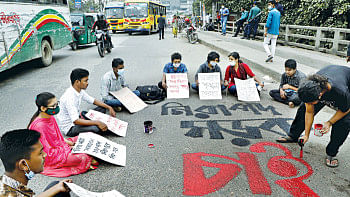
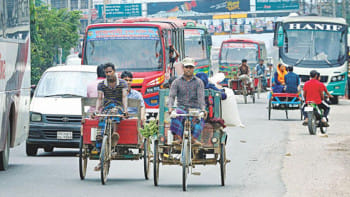


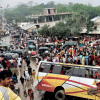

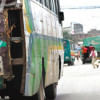
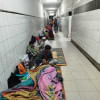



Comments